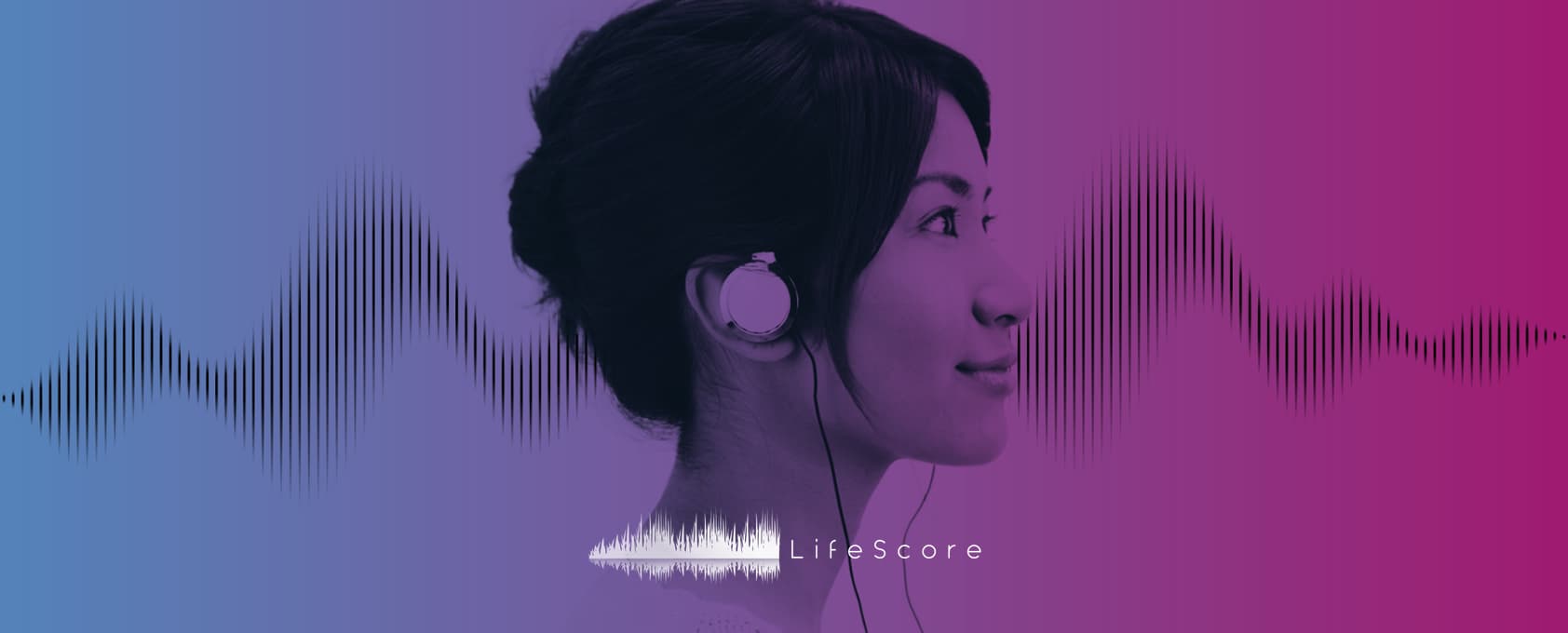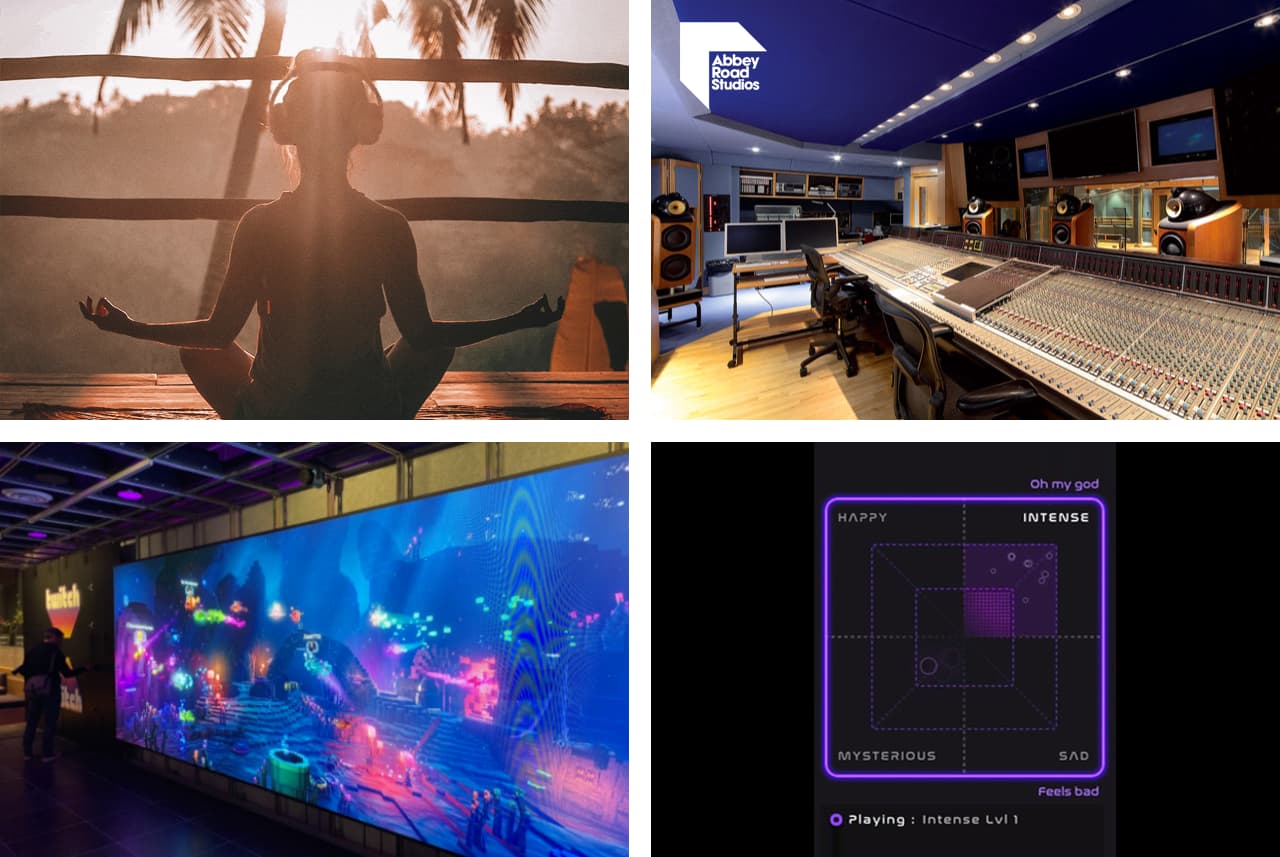Music that Adapts to the Journeys of Your Life

For most of history, humans have experienced music as live, ephemeral, and in the moment, joining composition and performance in the improvisational dynamic between musician and audience. Today, the dominant experience of music is something else: static songs that are written, recorded, packaged, and streamed to anonymous destinations. This puts the listener into the role of consumer instead of audience, constantly working to discover new titles that might meet her needs. Even the best music composed for film, which is critical to achieving the emotional impact of a story, is delivered as a static soundtrack.
LifeScore is a new way to experience music that brings back some of the tradition of on-demand, improvisational performance, crafted to meet the needs of the listener. LifeScore creates adaptive music, music that is composed and played by a computer and which adapts to the context and needs of the listener. LifeScore provided the soundtrack to the Emmy Award-winning TV show Artificial, a live-performance story that unfolds with audience input during the show. LifeScore’s music was composed on the fly and adapted to the emotions experienced by the audience via the text/emoticon feature of Twitch.tv. As the audience freaked out to a scene, the music automatically changed from happy to intense. Another application is music designed for a function, like focus or sleep. Adaptive music can monitor how well it is achieving its function — like whether you are drifting off — and change the composition in response.

LifeScore’s adaptive music is not a replacement for human-created music. On the contrary, it is a new way for human-composed and performed music to be algorithmically produced on demand. This allows it to break free from the constraints of the song and album format, so that a finite amount of time in the recording studio can give rise to many hours of unique, non-repetitive renditions that can be enjoyed for long periods of time. It also allows the music to be automatically tailored to the context and needs of the listener, to relax, focus or energize, or to support the emotional narrative of a video or immersive experience.
The CEO and visionary behind LifeScore is Philip Sheppard, who approached Tom to help create a Humanistic AI approach to music. Philip is a world-class composer and musician, who has written the musical scores for dozens of films and games and is a regular at the legendary Abbey Road Studios in London. His vision is not to replace musicians with AI, but to augment them with technology that allows their work to be combined and multiplied. Great music isn’t created by algorithmic execution of some musical theory, nor is it achieved by a machine-learned imitation of pre-recorded music. Great music, music that evokes emotion and energy in the listener, is something that the best composers and players know how to create. The problem is how to incorporate the musical creativity and expertise of these composers and musicians in the production of music by a machine — on demand and at scale.
LifeScore invented a way for composers and musicians to create the raw materials of music — the building blocks of a composition — and have the machine select, combine, layer, sequence, mix, and play out the final product in real time. The result sounds like music created by talented humans because it is algorithmically generated from these musical raw materials. Because it can adapt the music in real time, LifeScore can offer the benefits of music to entertain, inspire, relax, energize, and evoke emotion – and keep adapting as conditions change. It’s like having your own composer writing the film score of your life, dynamically varying the theme and weaving in new ideas as you move through the journey of your daily life.